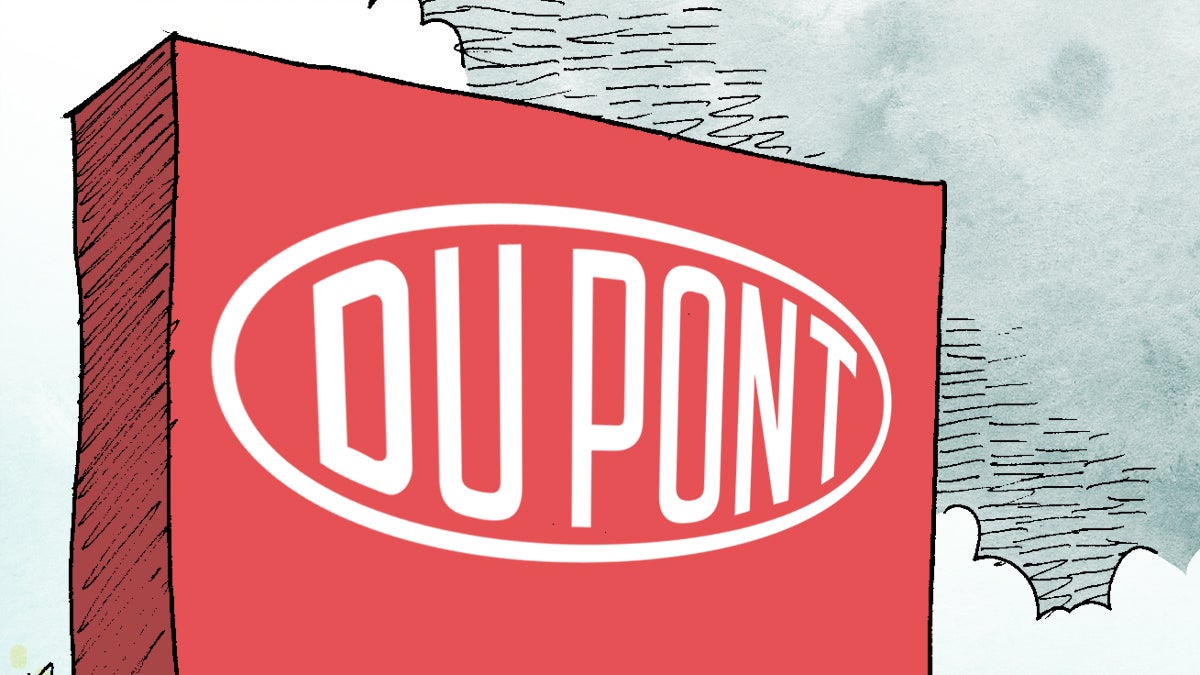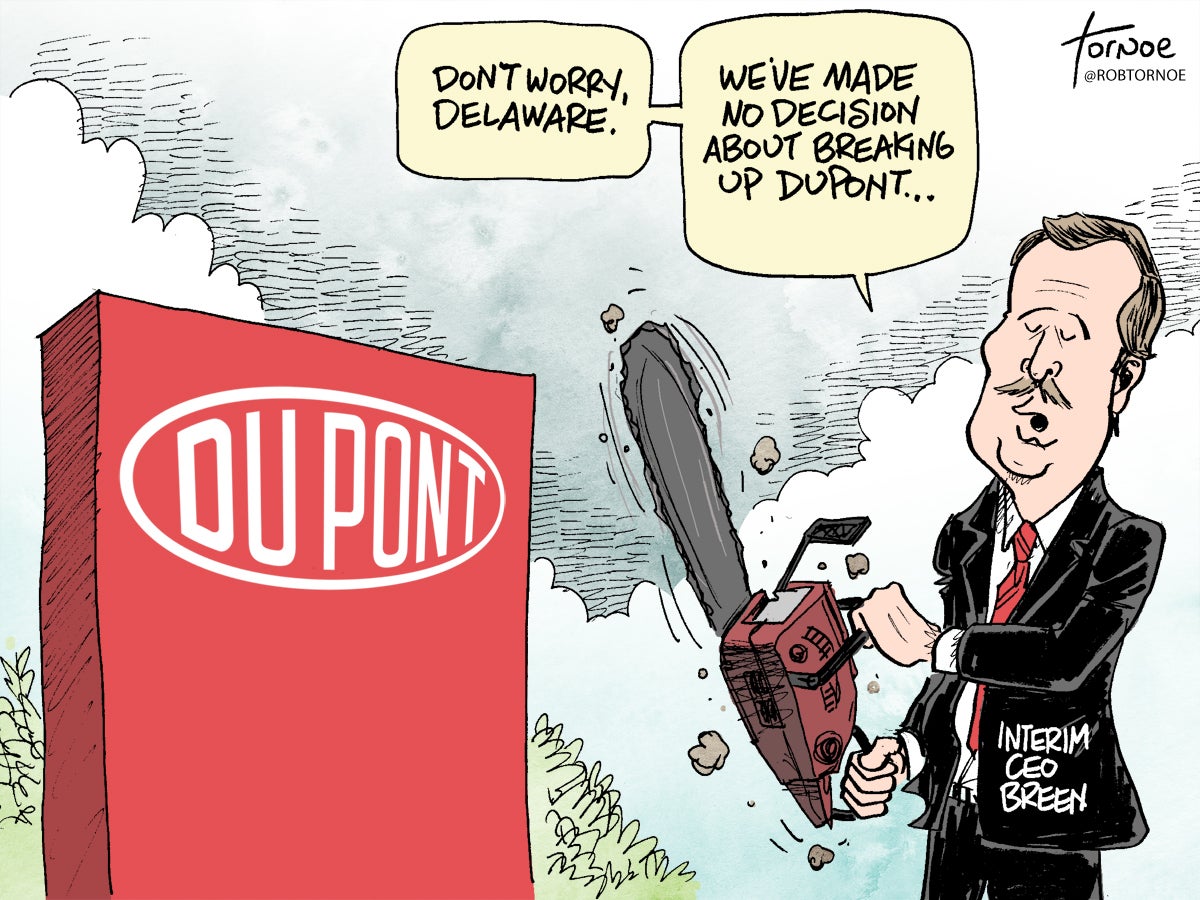The Tornoe Spin: Get ready for a DuPont break up

Unless you’ve been living under a rock this week, you’ve undoubtedly heard the news that DuPont CEO Ellen Kullman announced her retirement.

Unless you’ve been living under a rock this week, you’ve undoubtedly heard the news that DuPont CEO Ellen Kullman announced her retirement.
What you may not know is what this means not only for the company, but Delaware at large.
Unfortunately, you’re not alone.
What we do know is Kullman’s resignation (effective Oct. 16) came about suddenly, with no apparent successor immediately ready to take over. This is worrisome for a 213-year-old company that has always placed an emphasis on a smooth transition with a clear line of succession that utilizes experienced DuPont employees.
Her resignation also comes about after she became a local hero by fighting back activist investor Nelson Peltz, who wanted to break apart the company in a short-sighted move that might’ve boosted short-term revenues but cost the company the long-term leverage it has enjoyed for centuries, not to mention its status as a Delaware company, first and foremost.
Kullman’s “resignation” itself is an example of the importance Wall Street places on short-term performance, something Hillary Clinton has dubbed “quarterly capitalism.”
Kullman was an innovator who helped modernize and stabilize DuPont. It seems that, basically, two bad financial quarters have ended her tenure as CEO. When, in fact, shares have risen more than 100 percent since she took over in January 2009, at the height of the great recession.
Plus, it’s not as if DuPont hasn’t been cutting back, anyway. They sold the DuPont Theater and put the beloved Hotel du Pont for sale. The former car paint unit was sold back in 2013 and almost immediately saw its value soar under new ownership. Plus, there’s speculation that the DuPont Country Club could be sold and developed into housing or office buildings.
And Delaware doesn’t seem to be benefiting much from DuPont’s most recent breakup, the spin-off of their chemical operations into The Chemours Co.
So far, Chemours has gotten off to a rocky start and is already planning to shutter its Edge Moor production plant, affecting 200 employees. There are also fears the company may relocate its headquarters (and its nearly 700 employees) out of the DuPont building in downtown Wilmington to a neighboring state, which would be a devastating blow to the city’s economy.
I don’t have a crystal ball, but I’d expect more breakups and sell-offs in DuPont’s future.
They chose to replace Kullman (at least on an interim basis) with Edward Breen, a respected executive who suspiciously knows a lot about breaking up companies. He managed not one, but two company-wide break-ups during his decade-long tenure with Tyco.
Yale management professor Jeffrey Sonnenfeld thinks DuPont’s first move will be to sell of its agriculture products, which could hurt the company’s Experimental Station on Powder Mill Rd. Unfortunately, Sonnenfeld was also right about Kullman, who he referred to as “The Joan of Arc of industry.”
He meant it as a compliment. Unfortunately, like Joan of Arc she seems to have been burned at the stake, and perhaps a large part of Delaware’s history and culture with her.
——
Rob Tornoe is a cartoonist and WHYY contributor. Follow Rob on Twitter @RobTornoe
WHYY is your source for fact-based, in-depth journalism and information. As a nonprofit organization, we rely on financial support from readers like you. Please give today.


